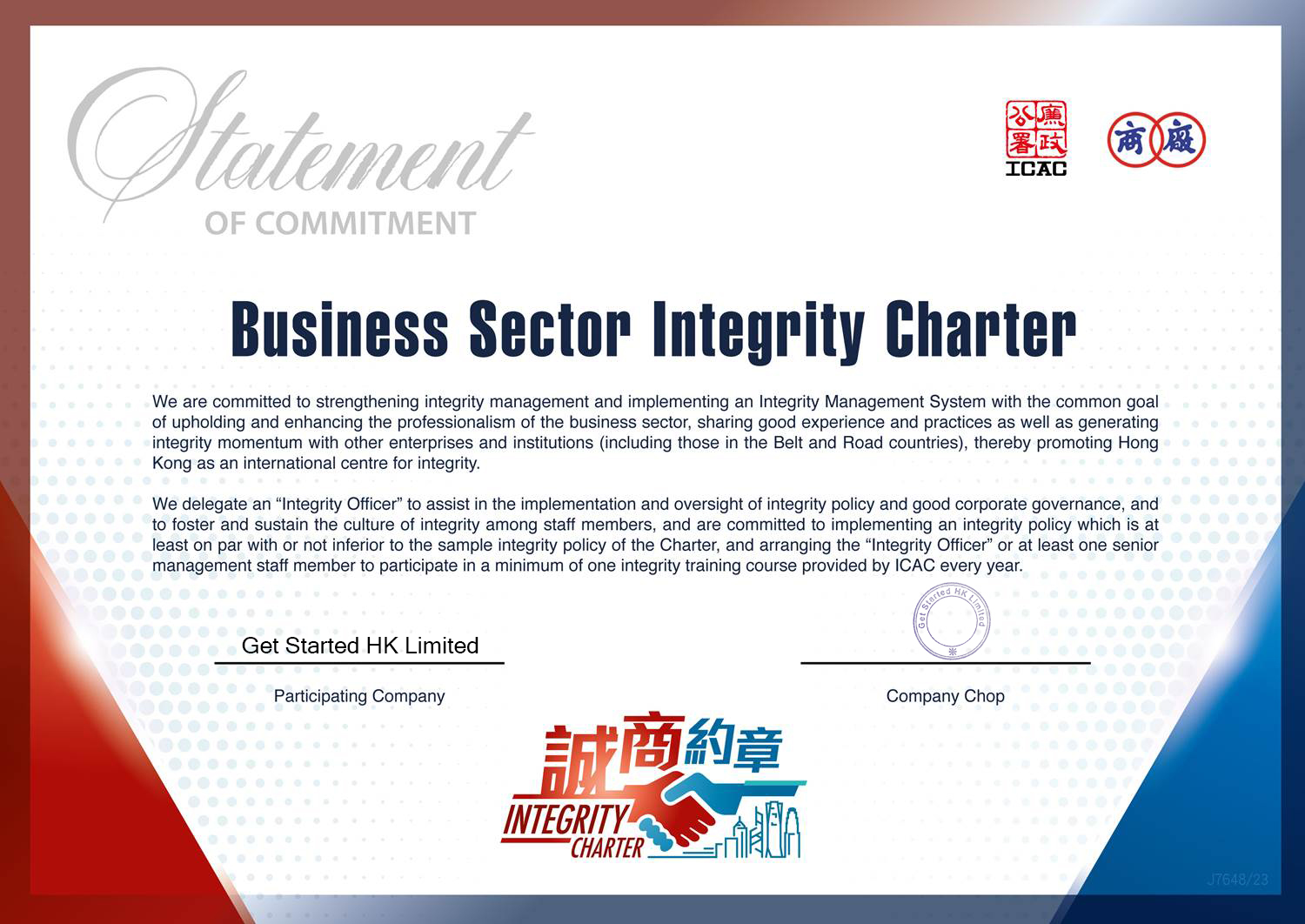
Contents
- What Corporate Secretarial Services in Hong Kong Include: Expert Company Secretary Service for Hong Kong Companies Key Takeaways
- The Core of Corporate Secretarial Services Include
- Navigating the Legal Framework
- Essential Secretaryship Competencies
- The Modern Secretaryship Evolution
- A Secretary’s Role Across Industries
- Beyond Minutes: The Unseen Value
- Conclusion
- Frequently Asked Questions
- 9.1 What is corporate secretaryship?
- 9.2 Why is a corporate secretary important for companies?
- 9.3 What skills are essential for a corporate secretary?
- 9.4 How does corporate secretaryship differ across industries?
- 9.5 How has the role of a corporate secretary evolved?
- 9.6 What legal frameworks must a corporate secretary follow?
- 9.7 What value does a corporate secretary provide beyond taking minutes?
What Corporate Secretarial Services in Hong Kong Include: Expert Company Secretary Service for Hong Kong Companies Key Takeaways
- Corporate secretaries are at the heart of governance standards, compliance and organizational transparency the very things that keep any company honest.
- Good communication and organizational skills, for secretaries to act as the liaison between board members, management and stakeholders to build trust and enable decision-making.
- Expertise in legal frameworks and compliance needs, such as keeping up with corporate laws and evolving regulations, allows secretaries to help the company minimize risk and stay legally sound.
- By incorporating technologies like digital document management and secure data systems, corporate secretaryship in companies enhances both operational efficiency and the protection of sensitive information.
- Among other things, the corporate secretary is now a valued strategic advisor who must bring business savvy and leadership, as well as the ability to adapt across sectors and cultures of global business.
- Continuous learning, especially in emerging fields like sustainability, ethical governance, and technology, makes the corporate secretary indispensable to an organization’s enduring success and resilience.
Corporate secretaryship in companies is completing the critical work that ensures a company complies with regulations and remains efficient. This position includes tasks such as taking minutes during meetings, maintaining corporate records, and ensuring compliance with regulations. Most companies consider the secretary as a liaison between the board and everyone else in the company. To learn more about what these jobs entail, the following sections dissect each component in detail.
The Core of Corporate Secretarial Services Include
Corporate secretaries play an important role in contemporary organizations by focusing on corporate governance and compliance. They serve as a bridge between board directors and executive teams, ensuring that governance practices are upheld and that communication flows effectively between internal and external stakeholders.
1. Governance
Secretaries have a vital role to play in sustaining corporate governance. They ensure board meetings run smoothly, establish clear meeting agendas, and capture decisions made by corporate leaders. These records provide accountability for decisions made by board members and the executive management team. A secretary shepherds the board by disseminating best practices and maintaining awareness of its obligations. For new directors, secretaries assist them in learning the ropes, equipping them with resources and guidance ahead of their initial meeting. All of this helps guarantee the company adheres to governance guidelines and that decisions remain transparent and equitable.
2. Compliance
| Key Compliance Aspect | Secretary’s Responsibility |
|---|---|
| Legal Filings | Prepare and submit statutory documents |
| Regulatory Disclosures | Provide timely, accurate reports |
| Board Documentation | Maintain minutes, resolutions, and registers |
| Compliance Training | Organize and track ongoing training for staff |
| Policy Implementation | Guide policy changes to meet legal requirements |
Secretaries play an important role in ensuring that the company adheres to legal entity governance and compliance matters. They must be knowledgeable about local company law, while also fulfilling their duties related to corporate governance. This includes preparing reports for regulators, maintaining audit trails, and assisting with training on new compliance requirements.
3. Communication
A good corporate secretary facilitates communication between the board directors, managers, shareholders, and regulators. They prepare reports, distribute notices, and communicate updates to ensure all parties are in the loop. Transparent, sincere messaging fosters trust and minimizes misunderstanding. If a company needs to communicate financial updates or policy changes, it’s the corporate secretary who ensures the communication is concise and punctual.
4. Administration
Secretaries play an important role in maintaining the corporate books, which includes monitoring bylaws, stockholder lists, and corporate documents. They leverage software to accelerate document workflow, simplifying file retrieval. Additionally, they coordinate meetings, prepare the agenda, and take minutes, all while adhering to governance practices and safeguarding data through rigid protocols for information security.
5. Advisory
Corporate secretaries play an important role in advising the board directors on best practices for corporate governance. They post about new laws, assist in forming governance policies, and recommend adjustments to keep the entity governance framework effective, fostering a tradition of great governance and continuous enhancement.

Navigating the Legal Framework
Corporate secretaryship is engrained in the necessity of charting a well-defined legal course. The corporate secretary plays an important role as the connection between the company, the board of directors, and the law. In most firms, the secretary ensures that all business licenses, regulatory approvals, and entity governance structures align with both local and international regulations. This work is more than just box-checking; it demands an intimate understanding of corporate law and the measures required to maintain transparency.
The legal obligations here are broad and rigorous. Secretaries have to maintain statutory records and company registers, prepare board resolutions, minutes of meetings and corporate filings. Each of these records is more than just a display, they are evidence that the company fulfills its legal obligations. For instance, in most countries, companies need to file annual returns in order to remain legal. It’s usually the corporate secretary who scrambles to gather financial statements, tax filings, and other required documents to satisfy this rule. If a business operates in multiple countries, this task becomes even more difficult. Secretaries have to know which laws apply and how to satisfy each one.
Rules that affect the work arrive from all directions. Local company laws and tax codes, even stock exchange rules, influence what the secretary has to do. For example, forgotten annual return or tax filing deadlines can translate to huge fines or corporate governance issues. Numerous secretaries use entity management software to calendar dates and house documents. These types of tools help mitigate risk and centralize all the data in a safe repository critical for cross-border teams.
Non-compliance is more than just a small slip. If a company doesn’t follow the law, it can be fined, sued, or even lose the ability to operate. The secretary’s job here is to identify risks early and provide the board with explicit recommendations on what to do next. For instance, if a tax law changes, the secretary will flag the change and navigate the board through the required steps to remain legal. The director frequently collaborates with the company secretary in establishing a tone for sound governance and a compliance culture.
The connection between corporate law and governance is intimate. Good secretaries assist boards in making decisions that satisfy both the law and the company’s needs. They have to reconcile what regulators desire with what’s best for shareholders and the company’s growth. That is, being a rule-follower and a problem-solver is essential for effective corporate governance.

Essential Secretaryship Competencies
Business secretaryship requires a combination of expertise, competence, and discretion. It’s not all about papers and appointments. Corporate secretaries are key to good governance practices, risk management, and supporting the board of directors and executive teams. Their work touches every corner of a company’s organization, from legal compliance to everyday communication, ensuring effective corporate governance.
- Deep knowledge of corporate laws and listing regulations
- Strong notetaking and accurate typing skills
- Excellent organizational ability to handle multiple responsibilities
- Advanced communication and negotiation skills
- Precision and attention to detail in all documentation
- Ability to develop and implement clear policies
- Ethical judgment, especially in areas like AI and cybersecurity
- Skill in onboarding and supporting new directors
- Business and financial insight to align governance with strategy
- guiding teams and board members leadership
Legal Acumen
A secretary can’t be weak on local and global corporate law. This covers the Companies Act, public company listing rules and data protection legislation. Secretaries must stay abreast of new rules, because a minor modification may impact filings or board actions. They must collaborate with legal counsel to address difficult governance matters. Their legal expertise keeps them from making mistakes that could result in fines or lawsuits.
| Law/Regulation | Area of Impact | Applies To |
|---|---|---|
| Companies Act | Corporate formation, filings | All companies |
| Listing Requirements | Public disclosures | Listed entities |
| Data Protection Laws | Board communications | All companies |
| Securities Regulations | Shareholder relations | Listed entities |
By staying current and identifying legal risks, secretaries assist boards in acting responsibly and avoiding expensive errors.
Business Insight
Knowing the business is as important as knowing the law. Secretaries have to make sense of financial figures and market developments. They bridge board decisions with the company’s long term objectives. This perspective informs strategy and enables boards to react to fresh challenges, like alterations in technology or global markets. By connecting governance to strategy, secretaries add more than tick-box value.
They leverage this insight to assist new directors during onboarding, providing them a transparent view of the company’s vision and vulnerabilities. This assistance guarantees directors are up and running and making an immediate impact.
Soft Skills
Relationship building is the essence of secretaryship. Secretaries interact with directors, shareholders, partners and regulators. They require tact, patience and the capacity to deal with sensitive issues. Direct, placid-speaking is crucial, among other things, in hard bargaining or settling an argument. Small mistakes like forgetting a statutory filing deadline can have major ramifications, so detail orientation is important.
- Communication: Convey ideas clearly to all parties, both in speech and writing.
- Conflict resolution: Manage disputes or disagreements during meetings with calm authority.
- Leadership: Guide teams, offer support to management, and help new board members adjust.
- Interpersonal skills: Build trust, maintain a positive work climate, and foster collaboration.
Secretaries should set ethical standards for the board by leading by example and making sure all board activities conform to legal and moral standards.

The Modern Secretaryship Evolution
Corporate secretaryship has left behind its primitive conception as mere paperwork and scheduling. Today, this function is more nuanced and strategic, defined by world commerce needs and rigid compliance structures. Secretaries are trusted advisors now, responsible for governance, compliance and effective communication between stakeholders. The job consists of mediating between boards, shareholders and regulators, demanding grit and flexibility.
Key changes in corporate secretaryship roles due to evolving business environments include:
- Shift from basic administration to strategic leadership
- Greater involvement in governance and compliance
- Increased responsibility for ethical and legal guidance
- Enhanced focus on digital recordkeeping and cybersecurity
- Broadened role as an intermediary between boards, shareholders, and regulators
Technological Integration
The modern corporate secretary employs technology to automate and accelerate office tasks, significantly reducing manual effort and mistakes. Digital calendars, automated meeting reminders, and cloud-based document storage assist with schedules and information far more effectively than traditional paper-based systems ever could. Safe e-mail and instant messaging give executive teams the ability to collaborate live, even if they’re on different continents.
Secretaries are taking on a pivotal role in corporate governance, particularly in data management. They use compliance software to adhere to governance policies, saving and exchanging records efficiently. Systems such as enterprise resource planning (ERP) and secure shared drives are commonplace. These online tools do more than safeguard data they simplify the discovery and distribution of what’s required for board meetings and corporate governance audits.
Staying on top of new tools is a necessity for secretaries. They track technological shifts, from AI compliance checks to digital board portals, to keep governance current. While tech-savvy secretaries were rare in the 1970s, the demand has increased, and organisations today seek applicants with digital aptitude and experience managing web-based platforms.
Strategic Influence
Secretaries collaborate with senior management and the board, influencing decisions that chart the company’s trajectory. They provide policy guidance and best practices, ensuring that the company behaves ethically and plans for the long-term. Their perspectives frequently inform board deliberations, particularly surrounding issues such as risk, ethics, or director responsibilities.
These professionals pilot governance enhancements, from composing transparent policies to assisting new board members as they orient. They assist boards decode shifting regulations and consult on the proper approach to new tech, like AI in compliance. With context and advice secretaries help boards make informed, responsible decisions.
Future Trends
Secretaries need to monitor trends like tighter reporting regulations, the emergence of sustainability objectives and the move towards responsible governance. They now contend with novel demands such as sustainability reporting and cybersecurity, requiring them to refresh their expertise regularly. As AI tools begin to conduct routine checks or highlight compliance risks, secretaries need to know how to utilize and supervise these systems ethically.
The need for smart, flexible secretaries remains on the rise as business gets more complex and global. Their combination of management, tech, and interpersonal abilities renders them indispensable in modern businesses.

A Secretary’s Role Across Industries
A secretary’s job is a lot more than taking minutes at meetings. It’s shifted considerably as businesses and regulations become increasingly complex. Today, a company secretary frequently serves as the primary point of contact between a board of directors, its shareholders, and legal or regulatory bodies. They ensure that organizations comply with applicable regulations, regardless of country or industry. Secretaries maintain corporate documents, distribute information, and direct board members, ensuring that everyone is informed of what they need to be, when they need to be. They further assist new directors in learning the ropes, which requires preparation and attention, particularly when it’s their initial board experience.
Secretaries do lots of other things behind the scenes that make boards work better. They coordinate meetings, organize agendas, and manage day-to-day tasks for the board and committees. They facilitate the flow of information and assist with strategic planning. Another significant component of the secretary’s role is managing reports and official statements. They assist in preparing annual reports, financial press releases, and insurance policy reviews. In all these positions, they heed the regulations and the firm’s principles. A lot of people assume a secretary only takes minutes, but their work is vital in defining how an organization is managed and ensuring it remains accountable and transparent through effective governance practices.
The skills secretaries employ in these positions translate virtually everywhere. Whether it’s a tech company, a bank, or a health care group, secretaries need to know the rules of corporate governance, facilitate leaders’ cooperation, and keep records. They need to pivot between assignments, address multiple audiences, and manage delicate matters thoughtfully. This work requires a person who can evolve with the company, continue to learn, and respond to new regulations as they arise.
Examples of secretary roles across sectors are abundant. Secretaries can advance their careers by learning new protocols, becoming certified, or assuming larger responsibilities as an organization expands! You can leave room to lead projects, train others, or even advance to chief governance or compliance roles. In all industries, secretaries are crucial to ensuring organizations are efficiently managed and prepared for the future, particularly in the realm of legal entity governance.
- Managing local and international regulation in global corporations
- Getting the year-end reports out to public and investors.
- Helping new directors get ready for board service
- Handling board and committee meetings (i.e., agenda-setting and minute writing)
- Reviewing company policies, like insurance and risk plans
- Serving as the main contact for regulators and shareholders
- Guiding boards through changes in rules or reporting standards
Overall, the importance of the corporate secretary role cannot be overstated. Their contributions ensure that the governance framework of the organization is upheld, making them indispensable members of the executive management team.
Beyond Minutes: The Unseen Value
Company secretary work is about a lot more than just writing minutes. Today, secretaries are key counsellors, leading boards and executives through the formal and informal rules of corporate governance. Their work now demands more than scheduling; they need robust people skills, have to be able to read a room, and frequently serve as a liaison for numerous parties within and outside the organization. Secretaries are relied upon to keep abreast of changing laws, steer board directors to comply with them, and assist the company in steering clear of expensive errors. For instance, when a board is uncertain how a new data privacy law impacts their plans, it’s the secretary who can translate the law’s effect to help sidestep dangers.
Secretaries also define the culture of a company, extending their influence well outside the boardroom. They play a major role in establishing a culture of integrity and confidence within the organization. It’s not just compliance it’s fostering an environment of integrity. Because company secretaries span both formal meetings and casual conversations, they’re well positioned to identify issues early and direct folks to wise, equitable decisions. Their counsel steadies the firm, even when there are stresses from internal or external to the organization. For instance, during crises, secretaries keep boards focused on values and clear communication, ensuring that the governance framework remains intact.
Stakeholder trust is another area where secretaries have a major influence. It’s not enough anymore for companies to just keep shareholders happy; other audiences such as employees, consumers, and neighborhoods count just as much. Secretaries act as an interface between the board and all these groups. They describe what the board is up to and why, and shuttle messages back from stakeholders to decision makers. By having these lines open, they build trust and keep people aligned. For example, when investors raise queries at an annual meeting, it’s the company secretary who ensures those questions get to the appropriate board members and that transparent answers return.
Secretarial work requires an uncommon combination of talents. Good secretaries understand people and process, crossing lines by collaborating with officers, board members, and third parties. They stay current with rules and best practices in corporate governance, and over the last couple of years, their jobs have expanded more work and more knowledge required to keep pace. They’re tasked with managing complicated relationships and assisting boards function more efficiently by ensuring everyone has the appropriate information at the appropriate time. Then there’s the ‘organizational space’ to consider the difference between what insiders and outsiders know. Secretaries employ their talents to bridge this chasm, guaranteeing communications reach their most appropriate destination.

Conclusion
Corporate secretaryship molds quality labor in each company. Distinct policies, keen abilities and a great deal of organizing prepared the way. Growth in this job wanders in on consistent learning and a genuine effort to rise to every new demand. In banks or in tech firms, secretaries keep teams humming safe and sound. From maintaining vital records to mentoring executives, their presence registers at every stage. Guidelines shift quickly but the essence remains robust. A lot of people observe just the papers and the reports and so forth, but the actual worth is the trust that is created, day after day. To carve your own in this world, inquire, educate yourself, and network with the veterans. Begin your next move today.
Frequently Asked Questions
What is corporate secretaryship?
Corporate secretaryship is the profession of ensuring that an entity’s governance practices comply with the law. It involves handling corporate documents, facilitating board support, and promoting good corporate governance.
Why is a corporate secretary important for companies?
A corporate secretary plays an important role in ensuring compliance with laws, coordinating board meetings, and maintaining corporate documents, thereby shielding the company from legal hazards and facilitating seamless functioning.
What skills are essential for a corporate secretary?
Relevant skills for a corporate secretary include precision, structure, legal expertise, and discretion to support board directors effectively.
How does corporate secretaryship differ across industries?
Although the fundamental responsibilities are comparable, industries have unique compliance and reporting requirements, which is why a corporate secretary plays an important role in tailoring governance practices to the specific necessities of every industry.
How has the role of a corporate secretary evolved?
The role of the corporate secretary has expanded from basic record-keeping to include strategic advisory, risk management, and digital governance, enhancing corporate governance practices and supporting company growth.
What legal frameworks must a corporate secretary follow?
They must adhere to local and international company law, corporate governance policies, stock exchange rules, and ethics, ensuring the company remains compliant with legal entity governance.
What value does a corporate secretary provide beyond taking minutes?
A corporate secretary plays an important role in corporate governance by facilitating decision-making, driving compliance, and fostering trust with stakeholders, ensuring effective governance practices.
Image Source: Freepik


